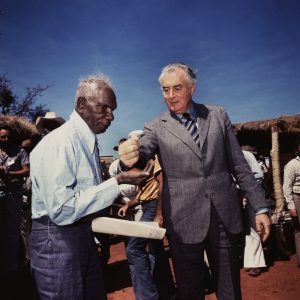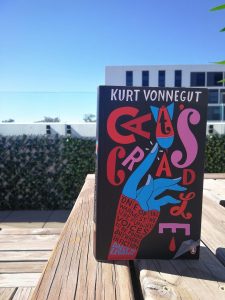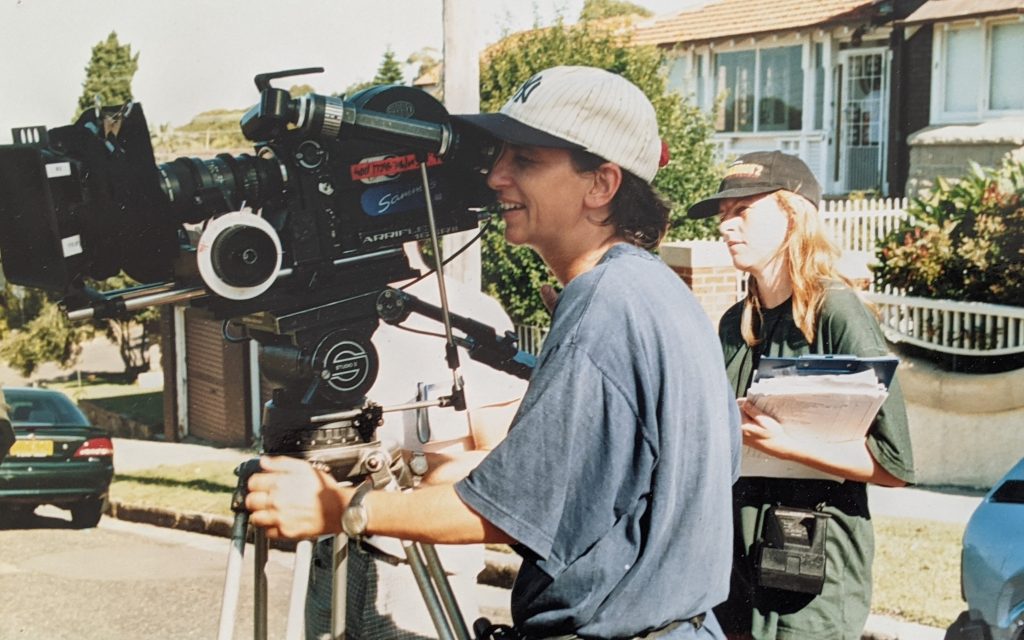The Hidden Gems of Middle Eastern Cinema
Middle Eastern cinema is one of those quirky gems that has managed to flourish under the utmost adversity. Just as Andrei Tarkovsky dogged Soviet film censors to bring us vivid and emotive portrayals of life in the former USSR, Middle Eastern filmmakers have weathered war and oppression to produce some of the rawest and hauntingly beautiful films in recent years. These are harrowing tales from truly adept and fearless filmmakers, conveying universal and human stories of resilience, heartbreak, and change.
Here are five Middle Eastern films that need to be on your watchlist:
Waltz with Bashir – Israel
Waltz with Bashir is hard to categorise as such, it is autobiographical in the purest sense. Folman animates with vivid colour and imagery the events and conversations of his journey of self-discovery and the exorcism of his personal demons.
Folman is haunted by nightmares, which as the film opens, he vividly animates before cutting-to himself relaying this to friend in a bar in Tel Aviv. These nightmares pertain to one of the darkest stains on the Israeli histography, a dark spot marring the minds of many now-middle-aged Israelis; the Lebanon War. In 1982, Israel invaded Lebanon, its northern neighbour. Lebanon had been wrapped by years in a bitter civil war in which many Palestinian refugees who were forced from their homes in what is now Israel decades prior, were active. Many of these Palestinian refugees settled in camps in the south of Lebanon, camps which fell under the auspice of invading Israeli forces.
The Israelis went so far as to march on to Beirut, the capital, and it’s the result of this fateful endeavour that Folman hopes to find buried in the recesses of his mind – a pain long-buried. When the Israelis marched on Beirut, they assumed control of refugee camps on its outskirts. Under their watch, thousands of innocent Palestinian civilians were massacred by Lebanese Christian militia under the watch of the Israelis.
Folman vividly recalls not just his own hazy memories, which are recalled in fragmentary flashes of colour and violence, but those of his friends who served alongside him. Military service is compulsory in Israel, and so Folman draws stories of young men debased and terrified by war – marching into lands which were not their own, where they were not wanted and where the locals were more than happy to shoot back. He gives life to the conversations he has with old friends and war-buddies, as well as desperate sessions with his psychologist-friend as he tries to piece his fragmentary mind together.
Waltz with Bashir explores the naked depravity and inhumanity of war; its toll on the sole and the psyche. As well as how we confront that toll and our own complicate role in the violence of war. Its filmmaking is novel and highly unique; it’s a rawness and honestly brought to life in a vivid, animated spectacle.
The Insult – Lebanon
Director Ziad Doueiri’s follow up to his haunting, thrilling 2012 hit The Attack, The Insult is as twisted, convoluted, and chaotic as the nation in which the film takes place. Lebanon is a frenetic and insane place that is perpetually perched on the precipice of sectarian chaos. This is translated perfectly into Doueiri’s tale of a bitter Christian-Lebanese man and his confrontations with an elderly Palestinian refugee which quickly builds from a small-scale feud into a court case on the national scale.
The scale of things in The Insult might seem inordinate – how an insult can ignite a nation, stopping court case and ignite bitter societal tensions. But that’s just how things can spiral in a country like Lebanon, a country desperately trying to emerge out of the shadow of a 15-year civil war and numerous Israeli invasions. Sweeping shots over Beirut lend to the film’s sense of scale. Its stakes are real, its players are too. Bashir Gemayel. The Lebanese Front. The massacre at Damour. You won’t likely know these names, but you will after walking out of The Insult.
The Insult never shies away from the reality of Lebanon’s bloody past; the actors who played prominent roles, or the real-life scars it left behind. Nor is it afraid to leave the viewer wanting. The Insult doesn’t provide any answers. While the film closes with its central court cases concluded, just like many questions absorbing the Lebanese today, it doesn’t leave you with any clear answers.
Once Upon a Time in Anatolia – Turkey
Once Upon a Time in Anatolia is a quiet, wistful film that, quite like the stoic winds of the sweeping plains of Anatolia, comes and goes without any start or conclusion. There’s no finality to be found here. Once Upon a Time in Anatolia is a frozen moment, a snapshot of a time and place. Its story is simple and withholding, painting in the dark of night its cast of rural Turkish characters and its quiet, forlorn story of murder and family.
While Turkey has escaped the wars that have ravaged the Middle East, it has not gone without chaos and upheaval all its own; coups and counter-coups, and immense social change – an endless struggle between modernisation and religious conservatism. This struggle between modernity and conservatism is at the heart of Once Upon a Time in Anatolia, which plays out deep in Turkey’s rural heartland. Its story teases out themes of family, sex, and violence, all drawn out with a melancholic, metaphorical touch. Once Upon a Time in Anatolia is a quiet film that wades slowly through its over two-and-a-half hour run-time, but it’s a slog that’s well worth the time. It’s contemplative and restrained, and offers no easy answers. Its directionless will leave you asking questions. It’ll leave you wanting more in the best way.
Once Upon A Time In Anatolia, dir Nuri Bilge Ceylan (2011) #film #cinema #SlowCinema pic.twitter.com/TdSBQx5YuO
— Dr Nadin Mai (@ArtandSlowFilm) June 27, 2018
A Separation – Iran
Iranian-born director Asghar Farhadi is a mainstay of world cinema; a two-time Academy Award winner and world-renowned auteur. His 2011 Academy Award winner, A Separation, is pure Asghar Farhadi at his finest. Many of Farhadi’s films trace a similar thematic course. They regularly deal with how one small event can cause the disintegration of families and relationships in an almost Shakespearean cascade of bitter grudges and unearthed buried pain. The push and pull of a family in freefall exposes the viewer to the nuances of Iranian life.
It’s a snapshot of–the complexities of life in the Islamic Republic, a widely misunderstood pariah of a country. In A Separation, Simin – played by Leila Hatami – wants to divorce her husband, Nader – played by Peyman Moaadi. Simin wants to leave Nader and to take their daughter overseas. Their marriage has collapsed under the weight of the constant care that has to be provided to Nader’s father who is suffering from Alzheimer’s. Simin’s application for divorce is denied by a court – the first of many bizarre qualities to life in Iran one is exposed to in Farhadi’s films – and helps Nader find a homecare worker to help her father-in-law. Nader hires Termah, a deeply religious woman who is, despite being desperate for the money in country burgeoning on economic collapse, is distraught at the intimacy with which she is exposed when trying to deal with Nader’s father. One day, Nader returns to find his father uncared for and distraught; he confronts Termah and in the commotion, she falls and miscarries, and Nader finds himself on trial. In the chaos of the Iranian legal processes that ensue, Termah’s husband is soon also put on trial for insulting Nader. It’s all an insane, calamitous affair.
By the time the credits roll, no one is happy. There are no happy endings in Farhadi’s films. And, while they are by-and-large very much products of the complexities of social and legal life in Iran – though, some, including the acclaimed The Past is also set in France, or elsewhere -, Farhadi’s films speak to universal themes of marriage and relationships. The fracture and breakdown of relationships is Farhadi’s bread and butter, and it is that which speaks so universally to his wide viewership; a universal language of despair that rises above cultural differences.
WATCH: #farhadi ’s Salesman wins #Oscars for best foreign-language film pic.twitter.com/gXYahvkHGI
— Press TV (@PressTV) February 27, 2017
My Sweet Pepper Land – Iraq
Cinema in Iraq is a rare thing. Yet, in the mountainous, Kurdish regions in the north, Iraq’s Kurdish minority have etched out a small niche for themselves. My Sweet Pepper Land is one of a small handful of films to have emerged in the wake of the fall of Saddam Hussein, he country’s former dictator, and the imperfect period of liberalisation that ensued in the mostly-autonomous Kurdish regions. These films all deal with similar issues: what is Iraq to make itself now that the dictator is gone? How can the people of Kurdistan escape the constraints of a society so deeply tied to tribalism and conservatism?
In one scene toward the end of the film, the film’s female protagonist Govend – played by the endlessly watchable Iranian-born actress Golshifteh Farahani – shouts angrily to her brothers as they are about to kill her to recoup their honour;
“Shame on you! You’re no different than the occupiers! You’re the same as Saddam’s
soldiers!”
At the heart of My Sweet Pepper Land is the challenge to the authority of old. Govend is challenging the patriarchal and honour-based society constraining women, while the film’s male protagonist Baran faces off against a corrupt local leader and warlord. It’s a rallying cry to the modern youth of Kurdistan – the name of the area’s comprising the Kurdish minority in Iraq, Syria, Iran, and Turkey.
This is all set to the backdrop of Iraqi Kurdistan: a vast, eerie landscape of stark, cloud-covered mountains and deep, jagged ravines. The land of Kurdistan is its own character in My Sweet Pepper Land. It is as stark and brutal as the struggles the film’s characters face.




Be the first to comment!